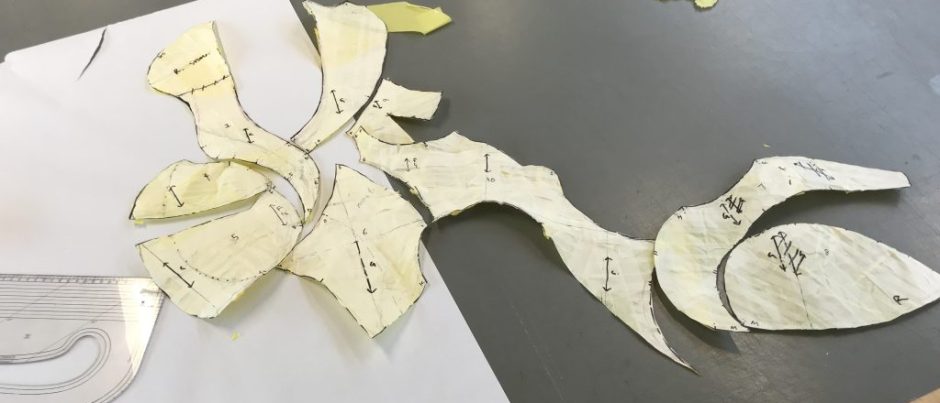Reading about Ethics and Action Research
I am aware that by the very nature of action research, and of my topic, I will need to re-evaluate my research project from an ethical standpoint throughout the process, particularly if my plans change and shift. As the project progresses, changes and shifts may occur (Kara, H, 2015) which creates new considerations beyond the ones I initially plan for.
Gender, Racism, Colonialism
From a feminist research standpoint, it may be useful to consider how gender and race may intersectionally effect my research, and its dissemination. This is perhaps most relevant when discussing the subject matter itself and the wider attitudes to the costume industry. Costume has historically been perceived as feminine, and is consequentially undervalued (not dissimilarly to craft, about which there is lots of literature, and the treatment of those who work in the garment industry).
The throwaway attitudes I have observed in students in their purchasing of fast fashion garments at the last moment, and the lack of appreciation for the time and skill needed to produce a costume, can also be connected to racist and colonial attitudes. Much of the garment industry is made up of women from the global south (Helm, 2024). As a white, European, middle class person, working with a student population that is largely white, European and middle class, this disassociation could be regarded as racist, and colonial.
As part of my ethical consideration, reading around costume, feminism, racism and colonialism will be pertinent. It may be interesting to interrogate these links, and use case studies to look at the individual attitudes of students with different intersectional identities, and the “implications for power relations” (Kara, 2015). However, this may not be possible to do as fully as would be ideal to within the scope and timeframe I have for this project, this being a vast and complex combination of factors. Furthermore, it may not be ethical for me to carry out a research project which interrogates and seeks to find ‘solutions’ to racism and colonialism, as a white European woman (Kara, 2015).
Another element to consider here is language, English being an additional language for many of the students and colleagues I work with;
“…non-English speakers may be seen by researchers and research ethics committees as vulnerable or incompetent participants, when in fact they may be entirely able to participate in research if the research is conducted in their native language or a translator is provided (Perry 2011: 906–7).” (Kara, 2015)”
Although I do not have budget for a translator, and the level of English spoken by all UAL students is to a high standard, in order to improve communication, and avoid missing out on rich data, I could, for example, allowing focus group students time to read through the questions ahead of time, conducting interview in-person, and using visuals to describe in intervention designs.
Regardless of these small adjustments, I must still be aware that I am conducting my research through an English speaking, colonial, academic lense.
Power Imbalance
Within the HE system, I am in a position of power. Particularly as I am now, recently, engaged as an academic tutor. This power imbalance with my students is clear, at a heightened level for those who are my tutees, who may feel compelled to participate, and/or provide data which they may deem to be beneficial to their grade or my favour (and therefore their grade). I would like to avoid inviting my tutees to participate n the focus group for this reason (and because they are first year students, who are less likely to have as much experience to draw upon in the costume studio at this stage of their academic journey at CSM.)
I plan to interview my direct colleagues for similar reasons. Not only are they my equal at UAL and with the department in status and job title, so there are no ulterior motives at play. However, the six of the department means that their identities are difficult to protect, and therefore I will need to make sure they understand this, and are fully aware of their right to withdraw from my research.
Data Protection
The above feeds into issues around data protection. Because of the issues I am focussing on, I will not collect any unnecessary personal data. The student data I collect will be anonymised, and the staff data will not contain any unnecessary personal data. I will securely lock away hard copies of the consent forms, and I will keep all other files pertaining to personal or identifiable data on UAL systems exclusively.
References
Kara, H (2015) Creative Research Methods in the Social Sciences : A Practical Guide, Policy Press, Bristol. Available from: ProQuest Ebook Central. [18 September 2023]. Created from ual on 2023-09-18 13:44:06.
Helm, M (2024) Fashion for the Earth: Beneath the Seams: The Human Toll of Fast Fashion. Available at: https://www.earthday.org/beneath-the-seams-the-human-toll-of-fast-fashion/ (Accessed 20 October 2024)
